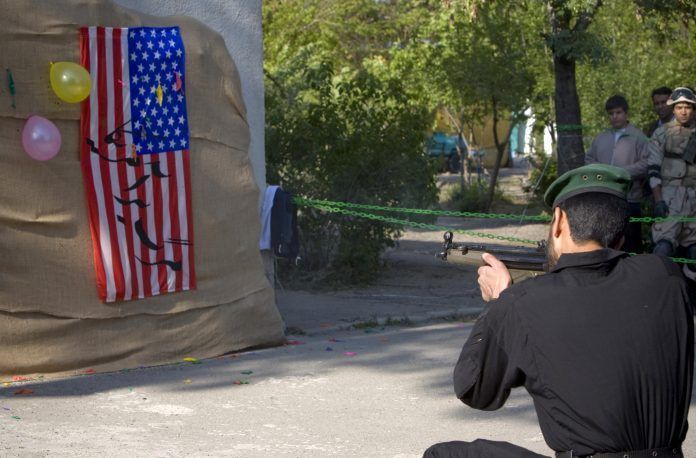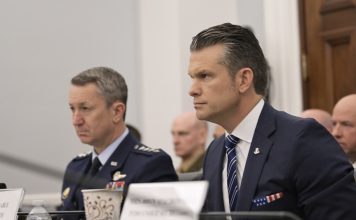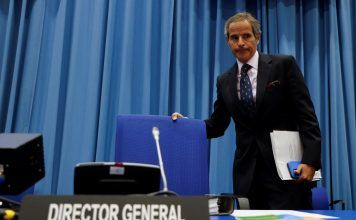
By Jonathan Landay
WASHINGTON, Aug 3 (Reuters) – The United States and Iran will have a brief window between their upcoming presidential elections in which to ease dangerous tensions, according to a new report from a Washington think tank that proposes pathways for resuming talks on Iran’s nuclear program and regional security.
The bipartisan Center for a New American Security report, co-authored by an informal adviser to Democratic presidential candidate Joe Biden, proposes a phased approach to easing tensions that could be adopted by Republican President Donald Trump in a second term or Biden, if he wins the Nov. 3 election.
Tensions spiked after Trump withdrew from the 2015 Iran nuclear deal negotiated by world powers during the Obama administration, when Biden was vice president. A resumption of U.S. sanctions has battered Iran’s economy and pushed Tehran to breach restraints designed to block nuclear weapons development.
The U.S. presidential election opens a window for easing the crisis before Iran holds a vote sometime next year expected to result in a hard-liner succeeding President Hassan Rouhani, under whom the nuclear deal was reached, according to the report seen by Reuters and to be released on Tuesday.
“You are looking at a situation where you might lose … the opportunity for U.S.-Iranian engagement, and it could be years away after that,” said report co-author Ilan Goldenberg, who served at the State Department and Pentagon during the Obama administration. “The risk of conflict actually exists.”
The historic enemies came close to war after the United States killed a top Iranian general in early 2020 and Iran retaliated with a missile attack on U.S. troops in Iraq.
The prospects for new talks appear bleak. The Trump administration is threatening to trigger a reimposition of international sanctions on Tehran ended by the nuclear deal unless the U.N. Security Council extends an arms embargo on Iran slated to lapse in October.
Iranian Supreme Leader Ayatollah Ali Khamenei last week ruled out any negotiations on Iran’s nuclear and ballistic missile programs.
Iran’s Khamenei Rejects Talks With U.S. Over Missile, Nuclear Programmes
In a phased de-escalation proposed by the report, the next U.S. president would offer to re-enter the nuclear deal – an idea Biden has embraced if Iran returned to compliance – or the sides adopt other measures that halt or roll back Tehran’s breaches.
They also would commit to a regional “calm for calm” and Washington would grant Tehran limited sanctions relief, the report says.
That relief would involve “modest, unilateral confidence-building measures” including ending Trump’s ban on travel from Iran and steps to ensure U.S. sanctions do not impede Tehran’s ability to deal with the COVID-19 pandemic.
The next U.S. administration would devise a long-term Iran strategy. It would consult Congress, European and Middle East allies, China and Russia before convening separate international talks with Iran on regional stability and the nuclear issue, including extending the time-bound restraints on Iran’s program.
(Reporting by Jonathan Landay; editing by Mary Milliken and Jonathan Oatis)







